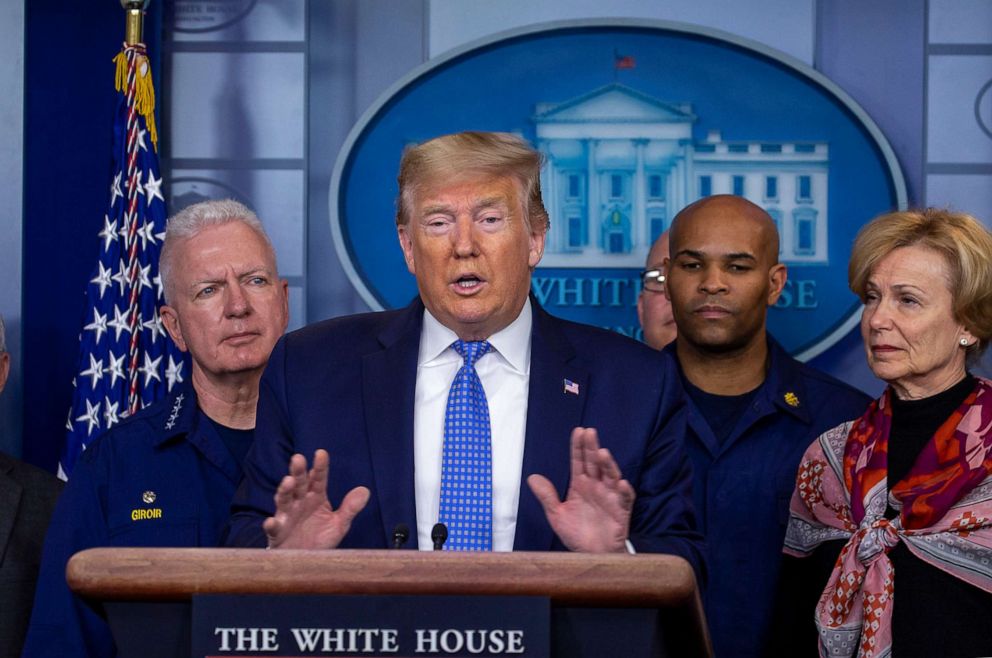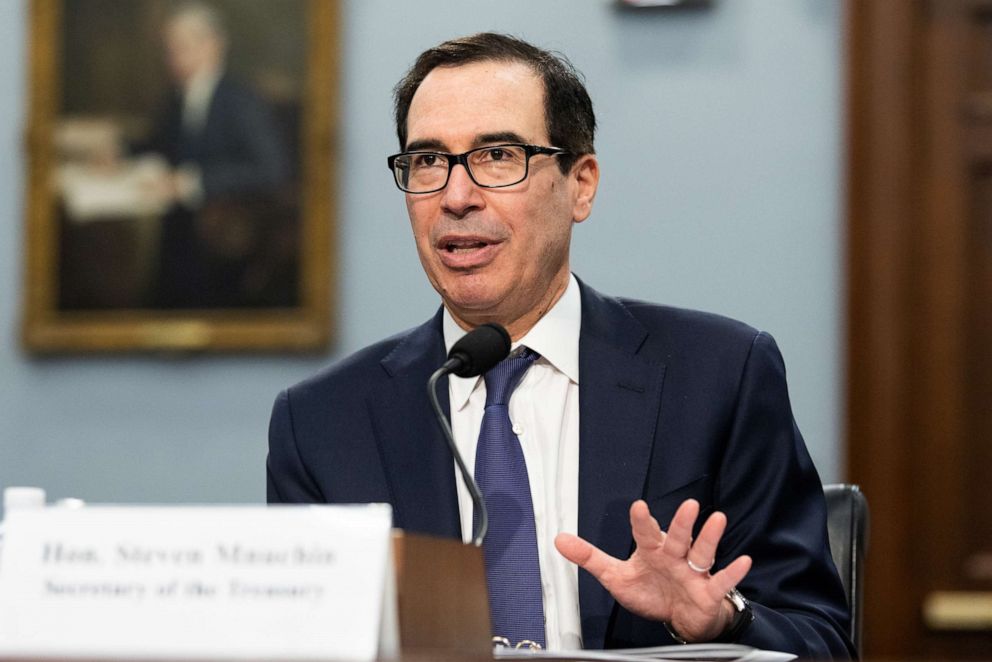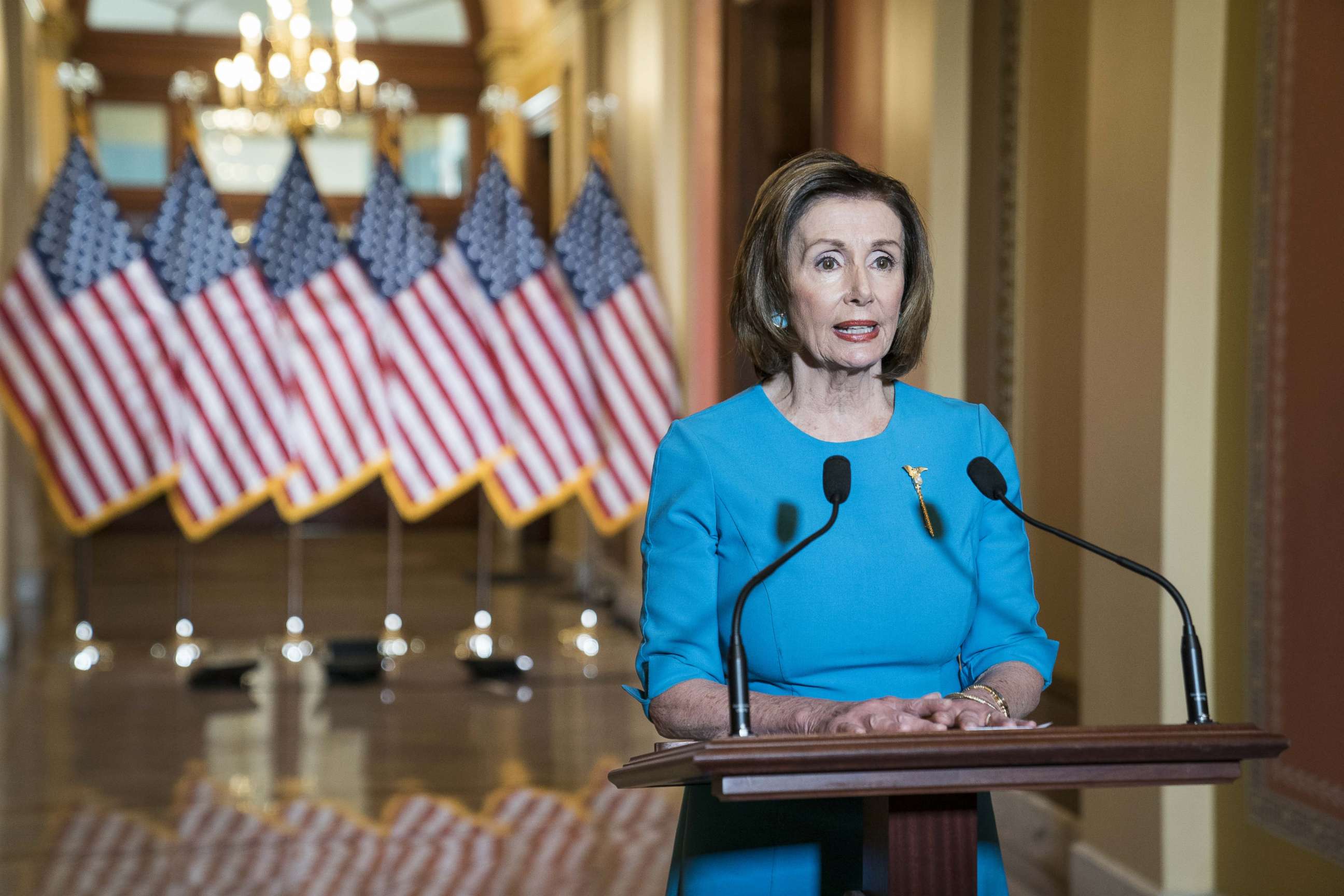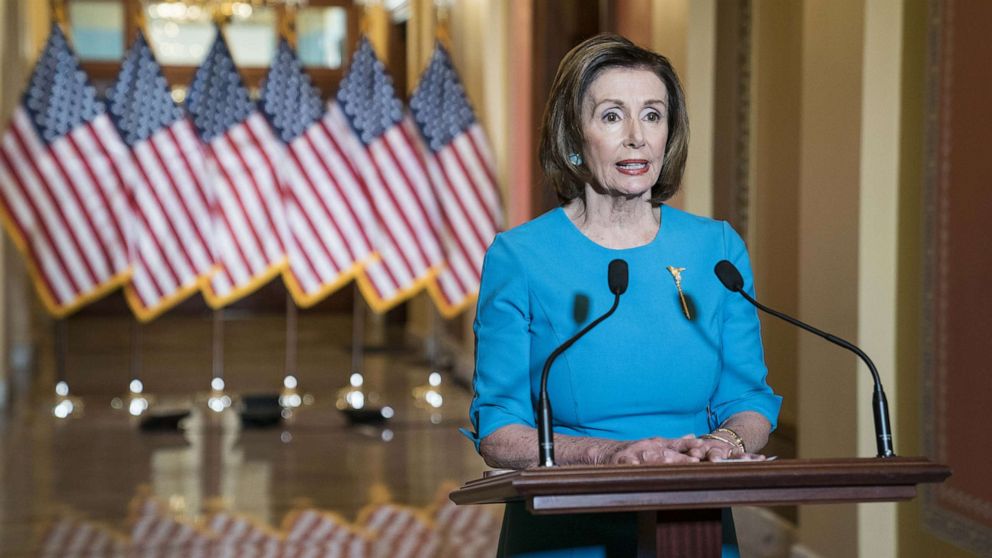Roadblocks ahead for House-passed coronavirus economic relief bill
After several hours of delay, the House late Monday evening passed -- for the second time -- a novel coronavirus economic relief package, a bill which lawmakers have said will help American workers and families impacted by the coronavirus pandemic.
The bill initially passed in a bipartisan vote early Saturday morning after hours of negotiations between House Speaker Nancy Pelosi and Treasury Secretary Steven Mnuchin. Due to a technical glitch, the House had to vote for the bill a second time.
But the bill was further delayed Monday after Texas Republican Rep. Louie Gohmert forced Democrats to allow him to read though the changes before allowing an unanimous consent request to prevail.
After a considerable wait, Gohmert said he believed the bill was a better version than the version he voted to oppose on Saturday morning.
The bill now heads to the Senate.

President Donald Trump even tweeted his support for the bill, and urged "all Republicans and Democrats to come together and VOTE YES!"
The economic relief bill ensures free coronavirus testing, bolsters unemployment insurance, increases spending on health insurance for the poor and adds $1 billion in food aid.
"This legislation is about testing, testing, testing," Pelosi said in a letter to her colleagues announcing the agreement. "To stop the spread of the virus, we have secured free coronavirus testing for everyone who needs a test, including the uninsured. We cannot fight coronavirus effectively unless everyone in our country who needs to be tested can get their test free of charge."

The agreement includes paid sick leave for some employees, as well as three months of paid emergency leave for some employees throughout the course of the coronavirus emergency.
But big businesses -- those with more than 500 employees -- are exempted from offering their employees paid sick leave or family leave under the bill.
The New York Times editorial board criticized the exemption in an opinion piece published over the weekend.
"The White House and congressional Republicans, who insisted on the exemptions as the price of bipartisan support for the legislation, bear the primary responsibility for the indefensible decision to prioritize corporate profits in the midst of a public health emergency," the NYT editorial board wrote. "But House Democrats also failed to act in the public interest. Paying sick workers to stay at home is both good policy and good politics. Why not pass a bill that required all employers to provide paid sick leave and then force Republicans to explain their objections to the public?"
Members of Congress were also critical of the exemption.
"On sick days and paid leave, these are temporary measures," said Rep. Rosa DeLauro, D-Conn., said in a statement. "While this will help millions, millions are still left out. So, I will build on these programs. It should not, and must not, take a pandemic to get working people the economic relief and stability they need."
Despite these criticisms, Pelosi and other Democrats were hailing the bill's passage as a win.

However, once the bill reaches the Senate, it’s still not smooth sailing. Several sources confirm to ABC News that the legislation could face some hurdles there.
"Of course, senators will need to carefully review the version just passed by the House," Senate Majority Leader Mitch McConnell said Saturday, "but I believe the vast majority of senators in both parties will agree we should act swiftly to secure relief for American workers, families, and small businesses."
McConnell, who announced last week that the Senate’s planned recess was canceled, has also signaled that the Congress should pass additional legislation to further address financial and public health burdens.
Some Republicans have said they believe the current bill still needs some changes, which could indicate a rocky path to passage.
"It doesn't go far enough and it doesn't go fast enough," Sen. Tom Cotton, R-Ark., said on "Fox & Friends" Monday morning of the House-passed legislation. "Most of the measures in this bill are something that the senators will support, I believe … But we worry that the bill setting up a new and complicated system relying on businesses giving paid sick leave and then getting a refundable tax credit that won't move quickly enough and could put pressure on those businesses to lay workers off."
Sen. Ron Johnson, R-Wis., said in a statement that he hopes the Senate "will approach this with a level head and pass a bill that does more good than harm -- or, if it won't, pass nothing at all."
Before the Senate can even act on the coronavirus bill, it will first need to debate and vote on renewing and reforming the provisions in the Foreign Intelligence Surveillance Act, some of which expired over the weekend.
But some Republicans, like Sen. Josh Hawley, R-Mo., are urging the Senate to pass the coronavirus legislation first.
"FISA needs to be carefully reviewed. That takes time. That can wait," Hawley tweeted. "The emergency response to (coronavirus) should be the first order of business in the Senate tomorrow. There is no reason for this to take days & days."
Senate Democrats are also calling on the Senate to work fast. Senate Minority Leader Chuck Schumer criticized McConnell for sending home the Senate last week before the coronavirus legislation was dealt with.
"It was disgraceful that Leader McConnell left town last night. ... We could have had this done already, but he left," Schumer said over the weekend from New York.




